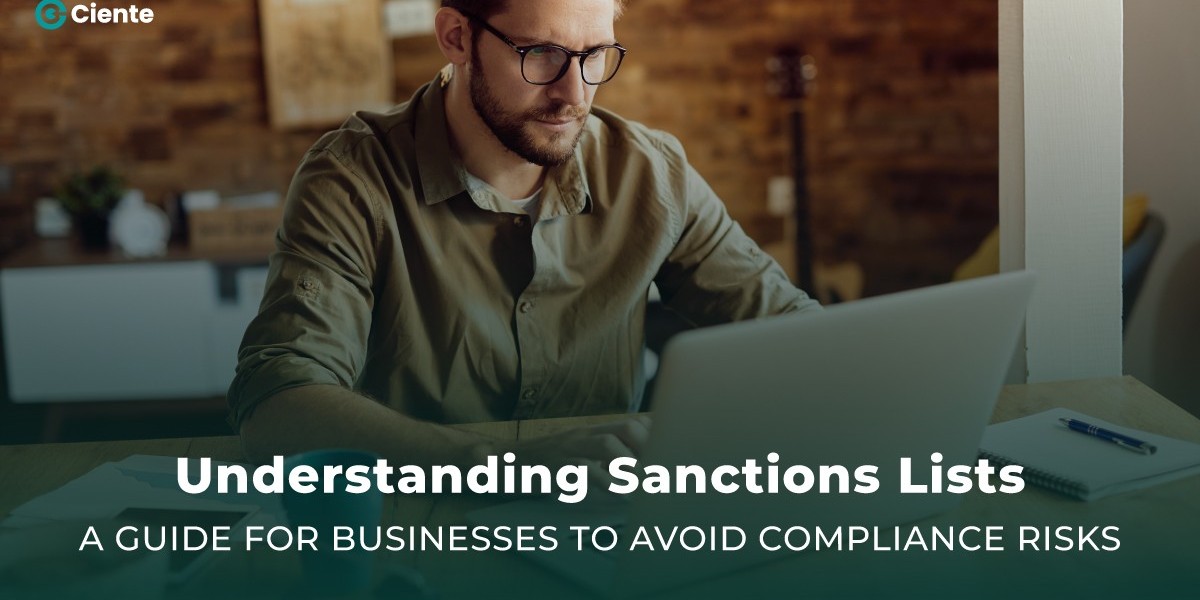In today's interconnected global economy, businesses must navigate complex regulatory environments to remain compliant with international laws. One of the most critical areas of compliance for global businesses involves sanctions lists. These lists, published by governments and international bodies, serve as tools to limit financial transactions and trade with individuals, entities, and countries that pose a risk to national security, foreign policy, or international peace. Failure to adhere to sanctions regulations can lead to severe financial penalties, reputational damage, and legal consequences. This tech article aims to provide businesses with an understanding of sanctions lists and how they can mitigate compliance risks effectively.
What Are Sanctions Lists?
Sanctions lists are comprehensive databases compiled by governments and international organizations that include individuals, organizations, and sometimes entire countries that are subject to restrictions due to involvement in illegal activities, terrorism, money laundering, or human rights violations. These lists restrict the ability of businesses and financial institutions to engage in transactions, investments, or partnerships with these entities.
Some of the most prominent sanctions lists include:
- OFAC List (Office of Foreign Assets Control) : Managed by the US Department of the Treasury, this list includes individuals and entities that are prohibited from doing business with US companies and individuals.
- EU Sanctions List : A European Union initiative, this list targets individuals, groups, and nations involved in activities that threaten EU interests.
- UN Sanctions List : Sanctions issued by the United Nations to curb activities such as terrorism and violations of international law.
- HMT Sanctions List : Maintained by the UK government, this list is used for preventing financial transactions involving sanctioned individuals and entities.
Why Sanctions Compliance is Crucial for Businesses
Compliance with sanctions lists is not optional—it is a legal requirement for businesses that operate internationally or deal with cross-border transactions. Violating these regulations can lead to substantial penalties, including heavy fines and the risk of being banned from doing business in certain markets. The US, for example, can impose fines in the millions of dollars for violations of its sanctions regime. Furthermore, a sanctions violation can severely damage a business's reputation, resulting in lost customers and reduced market share.
In addition to the legal and financial risks, businesses also face the challenge of ensuring that their marketing and technology strategies align with regulatory standards. Companies leveraging Martech (marketing technology) platforms to enhance customer engagement must also be mindful of sanctions compliance, particularly when dealing with international customers or data. Martech systems that gather, store, or process customer information can be unwittingly used to engage with entities on sanctions lists, so it's essential to integrate compliance checks within these systems.
How to Avoid Sanctions Compliance Risks
To minimize the risk of inadvertently violating sanctions regulations, businesses must establish a clear and proactive compliance program. Here are key steps to ensure your company stays on the right side of the law:
1. Understand the Sanctions Lists
The first step in avoiding sanctions violations is understanding which lists your business needs to monitor. This varies depending on your location, the markets you operate in, and your industry. For example, a US-based company needs to track the OFAC list , while a European company might be more concerned with the EU Sanctions List. Regularly updating your knowledge of these lists is crucial, as they are frequently amended.
2. Implement Sanctions Screening Tools
Investing in automated sanctions screening tools is essential for any business dealing with international trade, finance, or customer data. These tools can scan transactions, customer databases, and third-party entities against the sanctions lists in real-time, ensuring that no prohibited entities are inadvertently engaged with. For businesses leveraging Martech solutions to manage customer relationships and digital marketing efforts, it's important to integrate such screening tools into your CRM systems. This helps flag any potential risks early, allowing businesses to take immediate action.
3. Training and Awareness
Regular training for employees, particularly those in compliance, finance, and legal roles, is essential. All employees should be familiar with the sanctions lists and understand the risks associated with non-compliance. This includes not only employees who directly handle international transactions but also those involved in marketing, customer outreach, and business development. It is also important to ensure that your marketing teams are aware of the legal constraints when using Martech platforms to target customers in sanctioned countries or regions.
4. Conduct Due Diligence on Partners and Vendors
Before engaging with any new partners, vendors, or clients, businesses should conduct thorough due diligence to ensure that they are not on any sanctions lists. This process should be repeated regularly to ensure continued compliance. In addition to using automated sanctions screening tools, businesses can also ask partners for assurance that they are not engaged in activities that would violate international sanctions.
5. Create a Robust Reporting Mechanism
A clear internal reporting system is crucial in cases where potential sanctions violations are detected. Employees should know how to report suspicious activities or transactions, and the business should have protocols in place to investigate and address potential issues. This system will help mitigate risks and demonstrate a commitment to compliance to regulators.
6. Stay Updated on Sanctions Changes
Sanctions lists can change frequently, with new names added or removed. It is vital to stay up to date with these changes to ensure that your business remains compliant at all times. Regulatory bodies typically provide updates on their websites, and some tools can automatically notify you of changes. Subscription services that offer real-time alerts can help businesses stay informed and reduce the chance of overlooking critical updates.
Conclusion
Sanctions compliance is a critical aspect of running a global business, and failure to adhere to regulations can result in severe legal and financial consequences. By understanding the various sanctions lists, implementing appropriate screening tools, and establishing a comprehensive compliance program, businesses can minimize the risks of violating sanctions and ensure that they operate within the bounds of the law.










